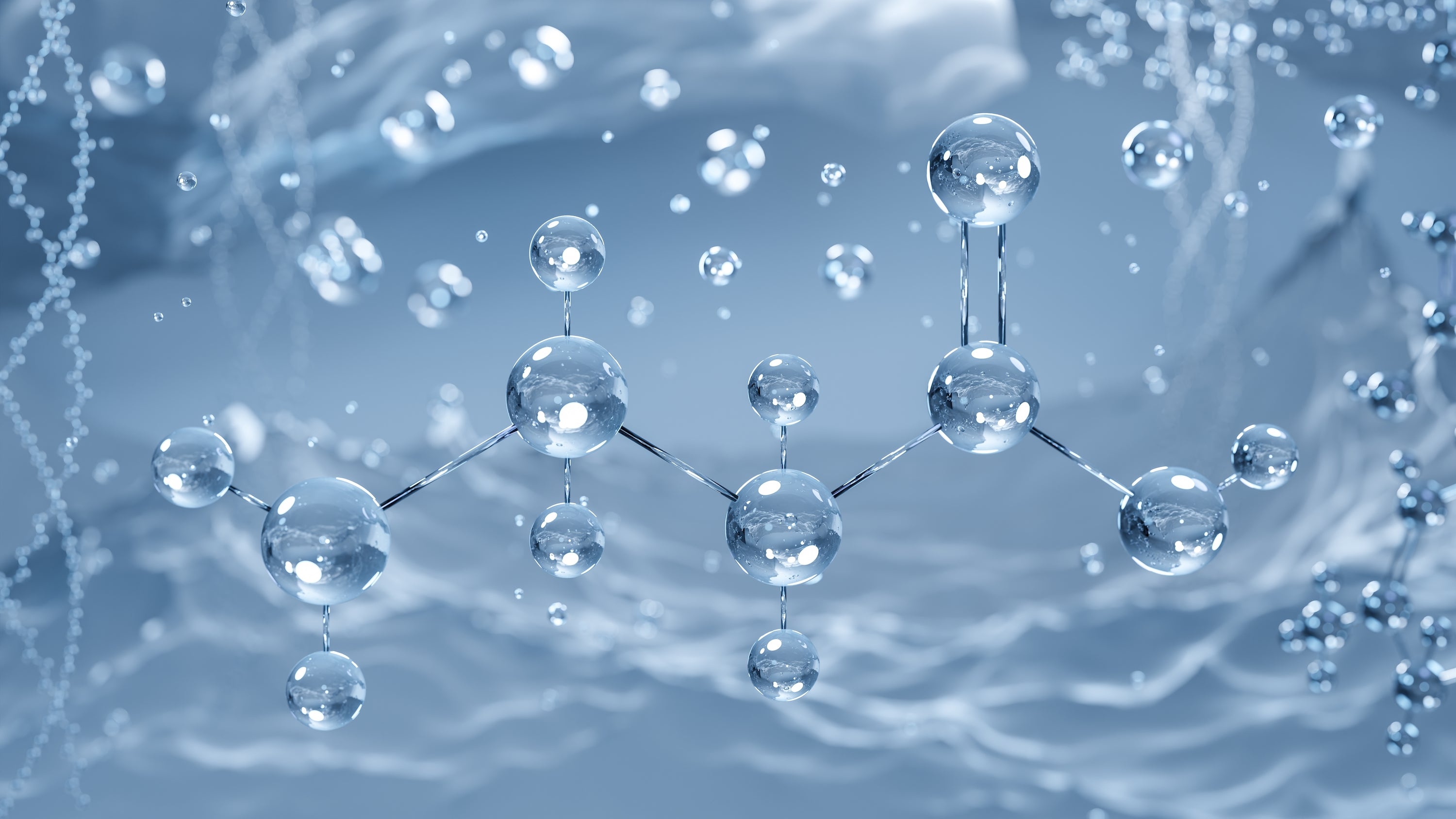Your skin is like that one friend who’s constantly demanding attention. It needs the right mix of nutrients, and no, a kale smoothie ain’t gonna cut it. Enter amino acids, the skincare equivalent of a high-end personal trainer. They’re the unsung heroes of your skincare routine, working tirelessly behind the scenes to keep your skin hydrated, firm, and generally less problematic.
Keep reading to learn how amino acids help your skin and more importantly how to make them a part of your daily routine.
What Are Amino Acids?
Amino acids are natural compounds that are fundamental to the structure and function of your skin. They’re the building blocks of proteins—including collagen and elastin—which are vital for maintaining your skin’s firmness, elasticity, and overall health.
In skincare, amino acids help to support your skin’s natural repair processes, enhance hydration, and strengthen the skin barrier. By incorporating amino acids into your routine, you’re giving your skin the essential components it needs to function optimally, ensuring it remains resilient and youthful.
There are a bunch of amino acids, but scientists generally highlight 20 as crucial for our health, categorized into two types: essential and non-essential. The term "non-essential" doesn’t mean they’re not important; it just means your body can synthesize them internally, so they don’t need to be sourced from your diet or supplements.
On the other hand, "essential" amino acids are indispensable because you have to get them through your diet or supplements. A deficiency in any of these essential amino acids can lead to various health issues (including bad skin).
5 Ways Amino Acids Benefit Your Skin
From fighting dry skin to fending off wrinkles, amino acids are the unsung heroes of any man’s skincare routine.
1. Enhance Hydration
Amino acids are hydration magnets, supporting your skin’s Natural Moisturizing Factor (NMF), which helps the cells retain water and stay hydrated.
2. Stimulate Collagen Production
Looking for a natural fountain of youth? Amino acids like proline and glycine are integral to collagen synthesis, which leads to firmer, more elastic skin and reduces the appearance of fine lines and wrinkles.
3. Calm and Soothe
Amino acids like histidine have anti-inflammatory properties, which can help to reduce redness and irritation, making them beneficial for people with sensitive skin or conditions like eczema and rosacea.
4. Strengthen the Skin Barrier
A healthy skin barrier is crucial for protecting against environmental aggressors and preventing moisture loss. Amino acids contribute to the integrity of this barrier, helping to keep skin strong and resilient.
5. Promote Skin Repair
Got a breakout or a pesky dry patch? Amino acids aid in the skin's natural repair processes by supporting cell regeneration and tissue repair, which is essential for maintaining healthy, even-toned skin.
What Are the Best Amino Acids for Your Skin?
Let’s talk about the A-list of amino acids for your skin.
- Glycine: Known for its critical role in collagen production and skin hydration, glycine helps maintain your skin’s firmness and elasticity.
- Proline: Essential for collagen synthesis, proline supports skin resilience and smoothness.
- Serine: Key for maintaining your skin’s moisture balance, serine enhances hydration and texture.
- Histidine: Provides anti-inflammatory benefits, soothing and calming irritated skin.
- Lysine: Vital for collagen formation and tissue repair, lysine contributes to overall skin health.
- Sodium Cocoyl Glycinate: Derived from glycine, this ingredient helps to maintain skin hydration and support the skin barrier, offering gentle cleansing and conditioning.
- Sodium PCA: A natural component of the skin’s NMF (Natural Moisturizing Factor), Sodium PCA is a powerful humectant that draws moisture into the skin, helping to keep it hydrated and supple.
How to Incorporate Amino Acids In Your Skincare Routine
Adding amino acids into your skincare routine is a breeze.
Start by switching to a gentle face cleanser that contains amino acids, like Fresh Start. This cleanser is packed with dermatologist-loved heavy hitters like niacinamide, hyaluronic acid, and amino acids to hydrate, cleanse, calm, and mildly exfoliate your skin.
You’ll also want to throw a lightweight, gel-based moisturizer into the mix. Revival, our 6-in-1 men’s face moisturizer, is infused with panthenol, a derivative of the amino acid serine which hydrates your skin and strengthens your skin cells’ ability to ward off toxins.
Remember—amino acids are the long game, not a quick fix. They need time to work their magic, but your future self will thank you.
Can You Use Hyaluronic Acid and Amino Acids Together?
Short answer: absolutely. Hyaluronic acid is all about drawing moisture into the skin, while amino acids make sure it stays there and that your skin uses it efficiently. When you pair these two, you’re setting up your skin for peak hydration.
Just think of it as the ultimate tag-team—hyaluronic acid does the heavy lifting, and amino acids make sure the results stick around. So yes, you can and should use them together if hydrated, glowing skin is the goal.
We’re Tripping on (Amino) Acid Here at PrettyBoy
Your parents and teachers warned you to stay away from acid. But we’re here to say you should embrace it with open arms—amino acids, that is.
A lot of dudes assume skin health is just about scrubbing your face with soap. But the truth is your skin is needier than a toxic GF. It craves vitamins, amino acids, fatty acids, water, and more. Luckily, we rounded up all the essentials and put them into the PrettyBoy Skincare Starter Kit.
No more 17-step regimens that take up your entire morning. Just a simple skincare routine that’s easier than playing 2K on rookie mode.



